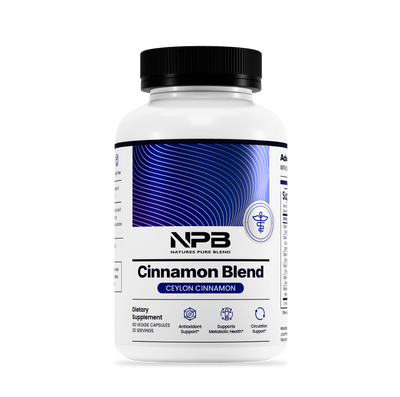Colder months don’t just bring shorter days—they can also affect your body’s blood sugar regulation. Many people notice higher glucose readings during the fall and winter, even if their diet hasn’t changed much. Understanding why this happens can help you make small adjustments to support normal blood sugar levels and overall metabolic health.
Here are 10 factors that contribute to blood sugar spikes during colder months:
1. Reduced Physical Activity
Shorter days and colder temperatures often mean less time spent outdoors. Lower activity levels can reduce the body’s sensitivity to insulin, making it harder for glucose to enter cells efficiently. [1]
2. Changes in Hormone Levels
Seasonal shifts can affect hormones such as cortisol and melatonin. Elevated cortisol during colder months may contribute to higher blood sugar levels.[2][3]
3. Less Sunlight / Vitamin D Decline
Lower sun exposure reduces vitamin D synthesis. Vitamin D plays a role in supporting normal insulin function, so decreased levels can impact glucose regulation. [4]
4. Warmer, Heavier Foods
Fall and winter meals tend to be richer and higher in carbohydrates. Consuming more starchy or sugary foods can temporarily elevate blood sugar, especially if insulin sensitivity is reduced. [5]
5. Stress and Seasonal Mood Changes
The winter months can bring seasonal stress or mild depressive symptoms, which may trigger stress hormones that influence blood sugar. [6][7]
6. Thermoregulation Demands
Your body burns energy to maintain warmth. In some people, the metabolic shift may affect glucose uptake and insulin efficiency. [8]
7. Sleep Pattern Disruptions
Shorter days and longer nights can disrupt sleep schedules. Poor or irregular sleep can impair insulin sensitivity, leading to higher post-meal glucose levels. [9], [10]
8. Increased Inflammation
Cold weather can subtly increase inflammatory markers. Chronic low-grade inflammation can reduce how effectively cells respond to insulin. [11][12]
9. Hydration Levels Drop
People often drink less water in colder months. Mild dehydration can concentrate glucose in the blood, temporarily raising blood sugar readings. [13][14]
10. Cellular Response Variability
Insulin resistance often fluctuates with seasonal changes. During colder months, cells may respond less efficiently to insulin, making it easier for blood sugar to spike after meals. [15][16]
Conclusion
Understanding these seasonal factors can help you take small steps to support healthy blood sugar levels. From staying active and maintaining good sleep, to monitoring carbohydrate intake and staying hydrated, each choice helps keep your cells responsive and your glucose levels more stable throughout the colder months.















